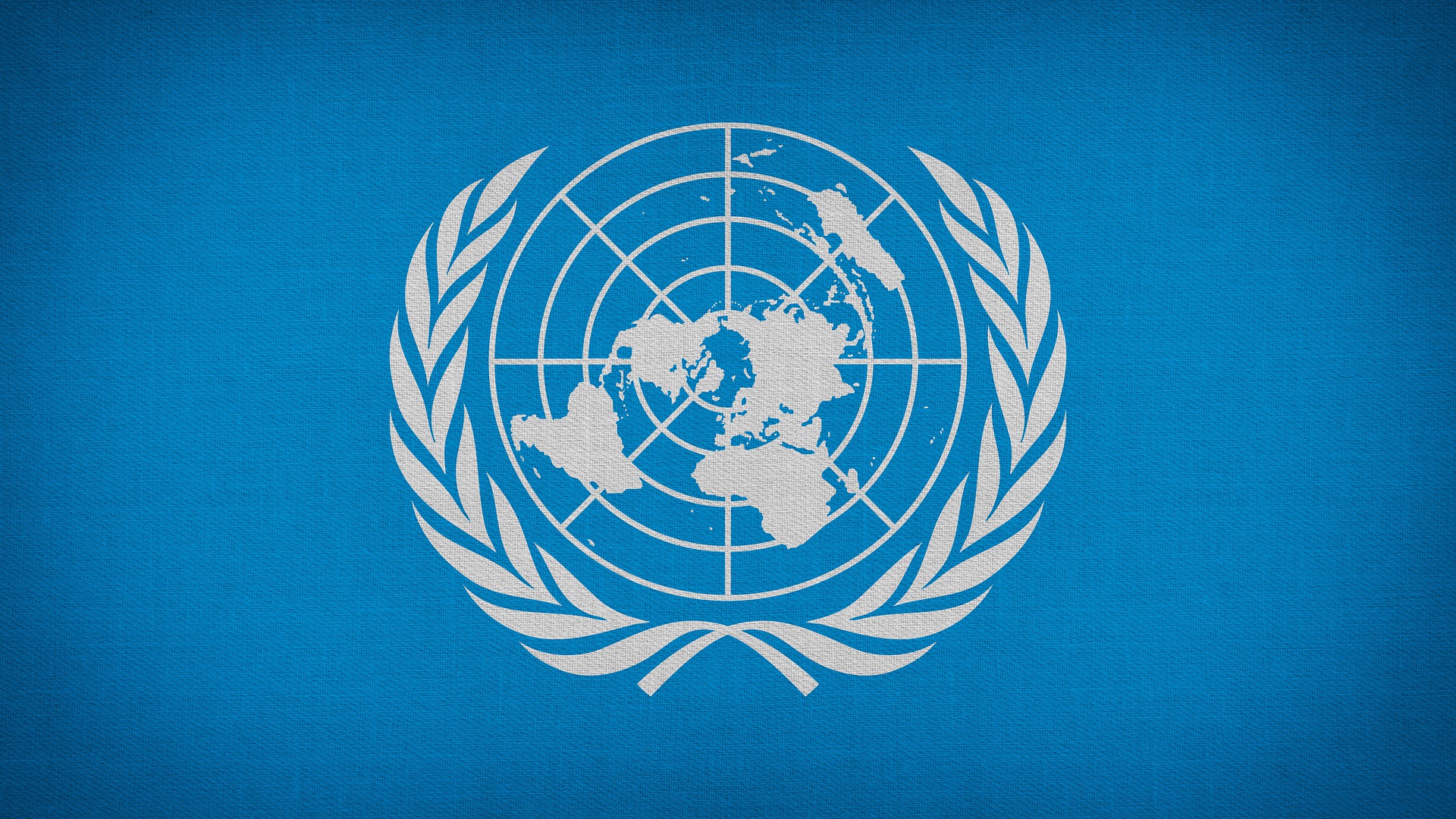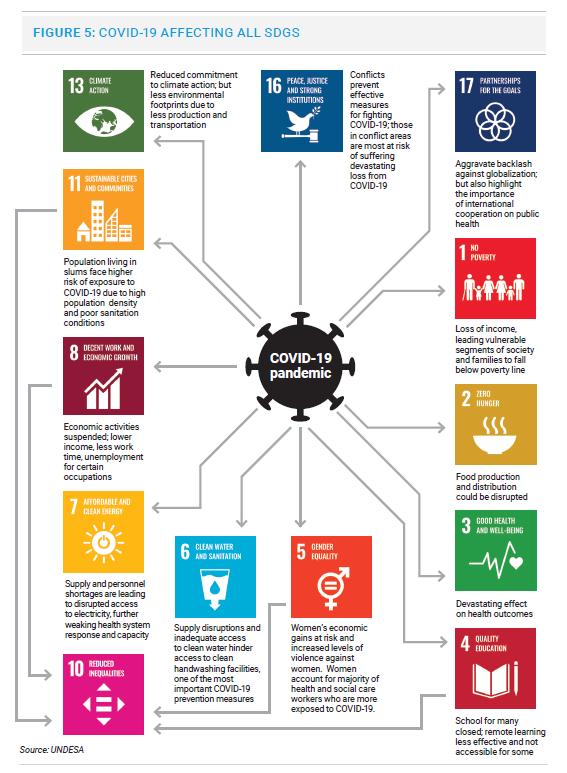COVID-19 impact on SDGs3 min read

The United Nations Sustainable Development Group, through coordinated action and in solidarity with countries, come together to implement the UN response to the COVID-19 Pandemic. As a matter of fact, in March 2020 a report has been released (“Shared Responsibility, Global solidarity”).
This report is a call to action, for the immediate health response required to suppress the transmission of the virus to end the pandemic. And to tackle the many social and economic dimensions of this crisis.
There are a few implications for the 2030 Agenda and the Paris Agreement.
The COVID-19 crisis is likely to have a profound and negative effect on sustainable development efforts. A prolonged global economic slowdown will adversely impact the implementation of the 2030 Agenda for Sustainable Development and the Paris Agreement on Climate Change. The figure below illustrates some of the expected first and second-order effects of the pandemic on SDGs implementation.
The most vulnerable, including women, children, the elderly, and informal workers, will be hit the hardest. The impact on the environment, on the other hand, is likely to be positive in the short term, as the drastic reduction in economic activity brought about by the crisis has reduced CO2 emissions and pollution in many areas. Such improvements are destined to be short-lived unless countries deliver on their commitment to sustainable development once the crisis is over and the global economy restarts.

Here are the COVID-19 impacts on SDGs:
SDG 1 “No poverty”: Loss of income, leading vulnerable segments of society and families to fall below the poverty line.
SDG 2 “Zero hunger”: Food production and distribution could be disrupted.
SDG 3 “Good health and well-being”: Devastating effect on health outcomes.
SDG 4 “Quality education”: School for many closed; remote learning is less effective and not accessible for some.
SDG 5 “Gender equality”: Women’s economic gains are at risk and increased levels of violence against women. Women account for the majority of health and social care workers who are more exposed to COVID-19.
SDG 6 “Clean water and sanitation”: Supply disruptions and inadequate access to clean water hinder access to clean handwashing facilities, one of the most important COVID-19 prevention measures.
SDG 7 “Affordable and clean energy” and SDG 10 “Reduced inequalities”: Supply and personnel shortages are leading to disrupted access to electricity, further weakening health system response and capacity.
SDG 8 “Decent work and economic growth”: Economic activities suspended; lower-income, less work time, unemployment for certain occupations.
SDG 11 “Sustainable cities and communities”: Population living in slums face a higher risk of exposure to COVID-19 due to high population density and poor sanitation conditions.
SDG 13 “Climate action”: Reduced commitment to climate action; but less environmental footprints due to less production and transportation.
SDG 16 “Peace, justice and strong institutions”: Conflicts prevent effective measures for fighting COVID-19; those in conflict areas are most at risk of suffering devastating loss from COVID-19.
SDG 17 “Partnerships for the goals”: Aggravate backlash against globalization, but also highlight the importance of international cooperation on public health.
Source: Report “Shared responsibility, global solidarity: Responding to the socio-economic impacts of COVID-19”, United Nations
Featured image by Miguel Á. Padriñán from Pixabay






